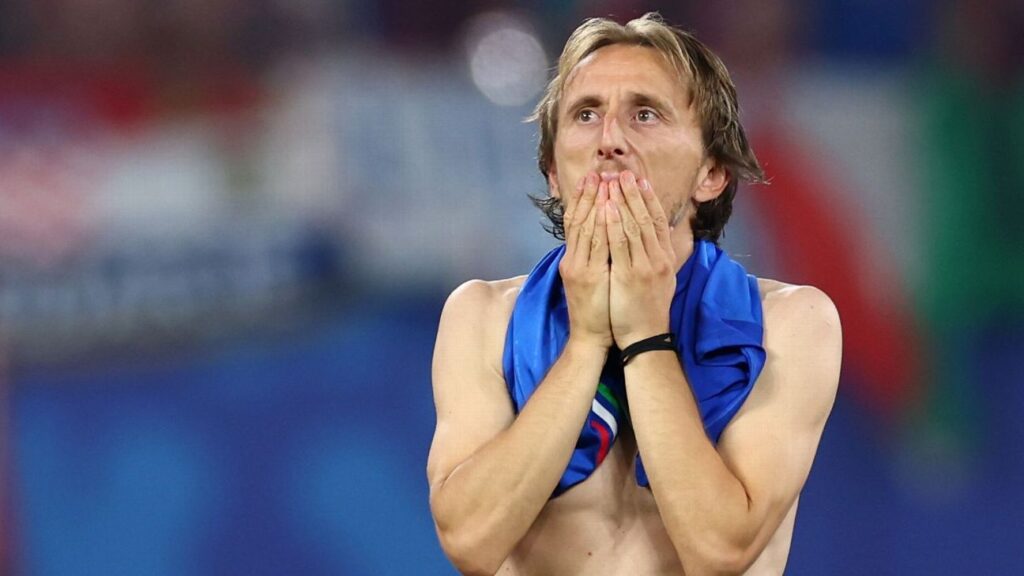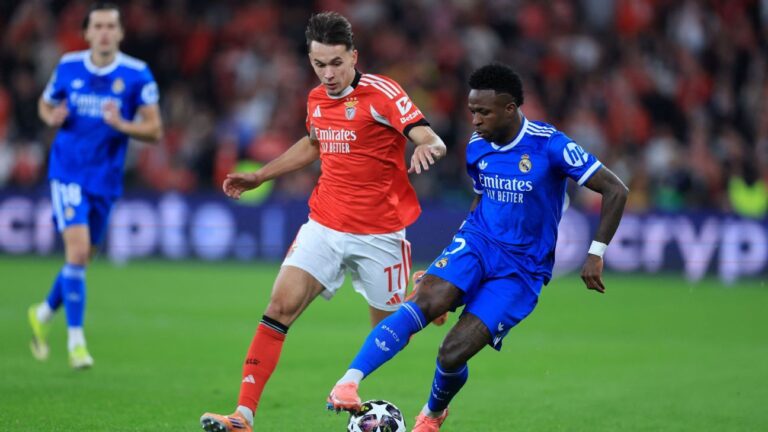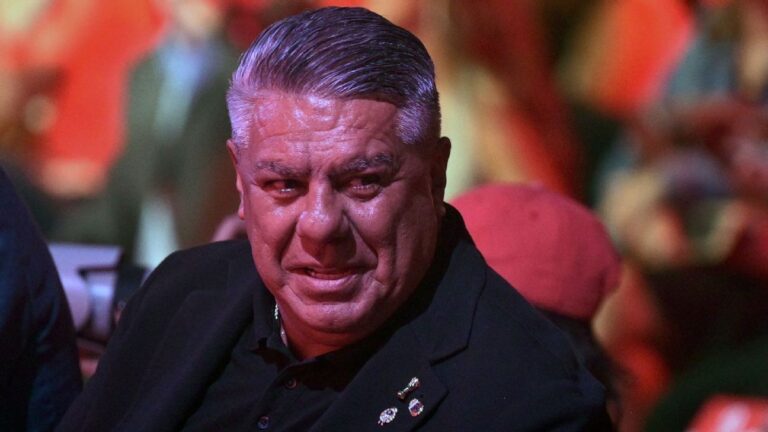LEIPZIG, Germany — His expression when posing with the UEFA Man of the Match Award said it all. Part medieval oil painting — the suffering peasant who thought he’d escaped the Black Death only to find his village burned to the ground — part battle-weary warrior turned to stone by the Basilisk’s gaze, part “I’m chucking this stupid piece of metal out the window because it’s meaningless now that we’ve lost.”
We don’t know if this was Luka Modric’s last game at a major international tournament. If you love this game, you will hope that he doesn’t know either. He likely doesn’t.
“I’d like to keep playing forever, but there probably will come a time when I must hang up my boots,” he said after Monday’s heartbreaking 1-1 draw with Italy. “I’ll keep playing on, but I don’t know for how much longer.”
What we do know is that he was put through a cruel centrifuge of emotions, a sadistic cycle of joy-despair-joy-despair that ended with that tinpot trophy pictured above and only the faintest of hopes of reaching the Euro 2024 knockout rounds.
After a relatively quiet first half, fate — and Davide Frattesi’s inexplicably head-height arm — gave him the chance to once again load up all of Croatia (“Small country, Big dreams,” read the slogan on many shirts) on his back and carry them further into the tournament. The VAR sent referee Danny Makkelie to the screen to investigate Frattesi’s potential handball, and when he returned and signaled to the spot, the heavily Croatian crowd erupted.
It was all on Modric now, and he wouldn’t let them down because legends don’t let you down. Except the hulking Italy keeper Giianluigi Donnarumma extended a long bear paw to his left and snuffed out the penalty, sending it spinning out on to the wing.
Did Modric have the time to realize that he had just squandered his country’s ticket to the next round? Or did the adrenaline stop him from even processing what had occurred?
If he did realize, he recovered pretty quickly. Croatia harpooned the clearance, sent in the cross, Ante Budimir was there to meet it, Donnaruma’s reflex save parried it out and Modric appeared to poke it home.
It was as if the football Gods had risen as one and said: “No Luka, this is most definitely not how you are going out.” Thirty-three seconds had elapsed. Either a blink of an eye or an eternity, depending on your perspective. But he was given his chance and, this time, he took it.
We saw a different Modric from that point. Fatigued, spent, but also single-minded, drawing upon energy reserves that ought not have been available to him. He even got himself booked for scything down an opponent, and when he was substituted with nine minutes to go, the Croatian crowd gave their captain an ovation.
And then it was all snatched away. The next thing he knew, the men in blue were celebrating and the UEFA suits were approaching him with that man-of-the-match statuette.
My sense is that it doesn’t end here. It’s not just loyalty and patriotism to his country and to his fans, it’s not just love of the game, it’s not just fear of what comes next for retired legends. Heck, we’ve been here before, very recently. Remember the first six months of his season at Real Madrid? His diminished role as a super-sub, his disgruntled looks from the bench, the realization that after 12 years he was no longer the hub of the club’s wheel?
Modric took it on the chin, sulked and then got up, dusted himself off and made it work. He embraced his role, finished the season strongly and played an important part in delivering Madrid their umpteenth LaLiga title and Champions League. Along the way, he had so much fun that sources have told ESPN that will extend his deal for another season, returning for 2024-25, rather than riding off into the sunset like his teammate and sidekick Toni Kroos.
Besides, just look at him. Ignore the craggy lines on his face and the sunken eyes. Or get yourself a good Instagram filter. You’ll see the same boyish bounciness, the same delicate touch, the same escapability, the same vision and the same drive he displayed a decade ago. There’s something Dorian Gray about him — how many other 38-year-olds do you know who can get away with that haircut?
And if, unlikely as it feels right now, he does call it a day, count yourself blessed to have witnessed so many of his successes, both with the ultimate blue bloods, Real Madrid, and the underdogs, Croatia.
Just do me a favor. Don’t talk of the end of a Golden Generation. That’s what they said when the 1998 Croatia team, the World Cup semifinalists, the side of Zvonimir Boban and Davor Šuker, Slaven Bilić and Robert Prosinečki, began to fade. And then what happened? This generation, the one of Modric, of Ivan Perisic and Ivan Rakitic, of Mario Mandžukić and Domagoj Vida emerged.
The torch is ready be passed, Josko Gvardiol is ready to receive it. Because yes, football is cyclical, but quality and mentality endure. And Croatia, as a sporting culture, have both.
But memo to Modric: If you want to pass on the torch, we’ll understand. Nobody will think less of you. Yet after what you went through on Monday in Leipzig, you don’t want to go out like this, do you?
Keep the torch, maybe until the 2026 World Cup. Your old teammate Cristiano Ronaldo will be there and he’s older than you. Chuck the silly man-of-the-match award instead. You don’t need it.




